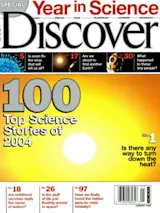Amid larger concerns over state-sponsored terrorism and nuclear arms development, Iranian and Western archaeologists set aside their nations’ political differences to achieve a breakthrough in research cooperation. Through a dialogue encouraged by Gil Stein, director of the Oriental Institute at the University of Chicago, this year large numbers of Western archaeologists began to excavate Iranian sites for the first time since Iran’s 1979 revolution.
Iranian cities once belonged to a trade network that connected cities in Central Asia with Mesopotamia and the Indus Valley. With excavations also reopening in Afghanistan, archaeologists are poised to gain insights into how cities started, the origins of social complexity, the rise of the state, the development of the first writing systems, and how trade systems worked.
“There is an entire sequence of civilizations that we only understand in the vaguest chronological sense, and we finally have a chance to investigate them more fully,” says ...














